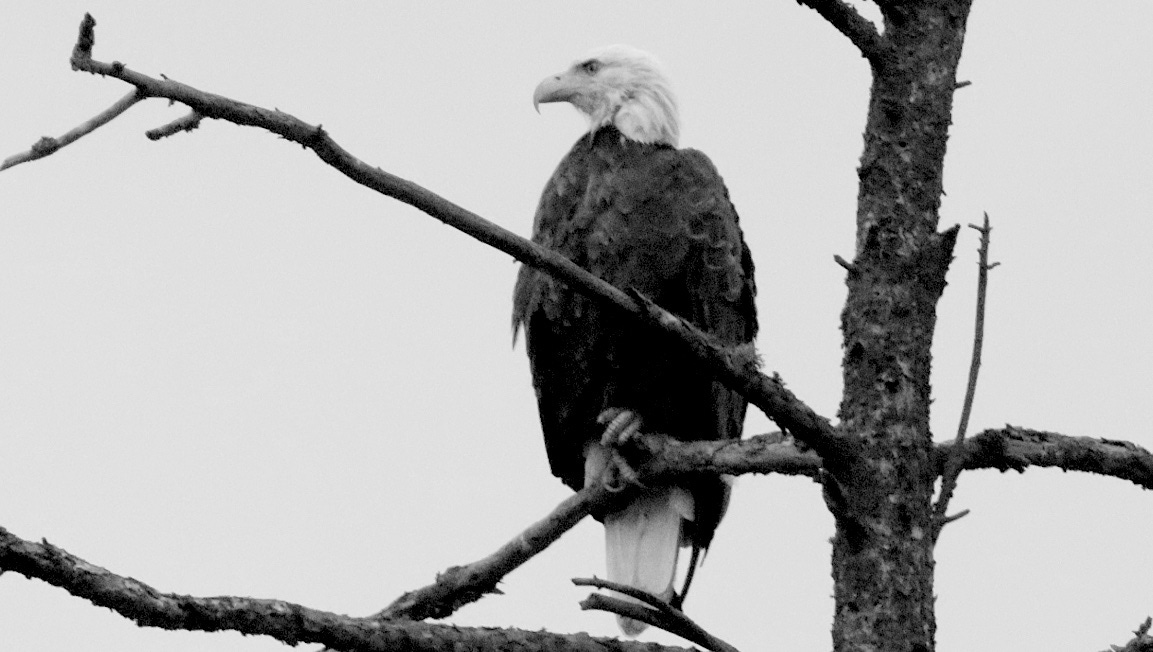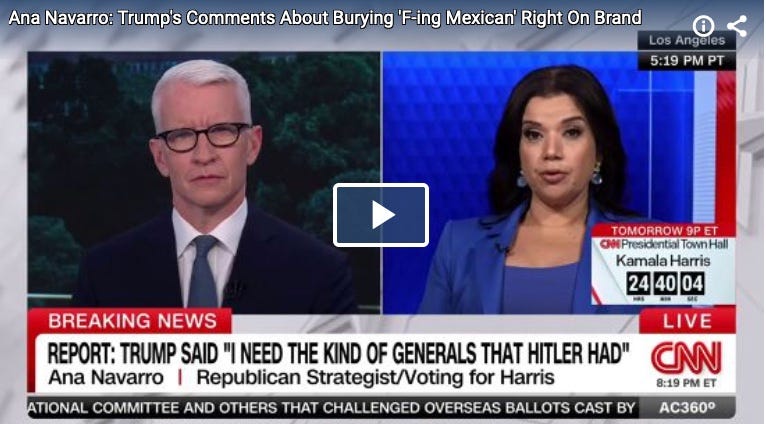Gobsmacked
November 7, 2024
The phone call
My two children called me Tuesday night as it became clear Donald Trump would be the next President. It is in my nature (as a former football quarterback who was not undefeated) to use humor to resolve tension and take the edge off humiliation and panic—which can happen in football when your team gets routed. Been there. My last book was about rocks, epochal floods and heartbreak. Been there too.
On the phone late Tuesday night, my heart opened up. To my kids. I apologized to them. I will tell you why.
Part of what I received in the marriage of my parents were family histories in civil service and journalism. The first story that got me in trouble, before I was 20, was one about asbestos falling into kids’ lunches at the local junior high school. I’ve spent most of my career as a independent reporter but have also had long intervals where I’ve worked for non-profit public interest groups as a researcher and spokesperson. I have testified before both houses of Congress and served on three federal advisory committees. I’ve regarded all of this as public service, not just as a vocation but as an earnest commitment to helping to build a better civil society that I could pass on to my children. It is what motivates me.
Tuesday night I felt like I’d let them down. On the last Friday in October I woke up at 1:30 a.m. bleeding profusely from my mouth. I’d had a molar removed a week earlier and the extraction site was suddenly gushing blood, which I was choking on. I had lots of gauze on hand but, still, I couldn’t stop the bleeding. So I drove myself to an emergency room where the wound was stitched. As I was driving home, still in the dark, the wound started bleeding again. I ended up having a second oral surgery, as the sun was coming up, to finally staunch the flow. My head still hurts, a bit, but the frustration and fear I experienced a week ago Friday closely presaged what I experienced Tuesday night, listening as one key state after another went into the column of a deeply corrupt human being—a convicted felon, sexual predator, and prolific liar. I felt like my country was bleeding out.
My apology to my kids was generational. I love both of them more than I can possibly express and my hope, as any parent’s hope would be, has been to leave them in a better world than the one I grew up in. Or at least no worse for wear. But Tuesday has shaken my hope and confidence. And I wound up telling them—as I was trying not to choke on my emotions—how grateful I am to be their father, and how blessed I’ve been to experience them as they grew into the beautiful people they’ve become.
The Visitors
I’m not in this space this morning to offer a postmortem on the election. You can easily find that elsewhere. At 8:13 p.m., Pacific Time, Tuesday, I responded to a text asking how I was doing.
“Gobsmacked,” I replied.
I spent hours on the phone, yesterday, with friends and family and much of last night processing it with my men’s group over dinner. (I also learned some new things about horses.) In betwixt I had space where I just kept the door open to whom and what would come in. Apart from the wispy ghost of Terri Garr (the comic actress—Young Frankenstein, Tootsie, etc, and her memorable appearances on David Letterman—who died in late October) there were two women and two men who took virtual seats.
Vice President Kamala Harris: The Vice President’s soul and character came to the fore this summer and fall when she was called upon to step in for Joe Biden. Come what may she distinguished herself with grace and poise under incredibly difficult circumstances. JD Vance will succeed her as Vice President and it is already part of Vance’s bibliography that he has compared Trump to Hitler (before expressing his admiration for him) and, in his last speech before the election, referred to Vice President Harris as the “trash” to be taken out. Classy guy.
Heather Cox-Richardson: Cox-Richardson is the prominent American historian whose daily Letters from an American reach more than 1.5 million subscribers. A year ago she had a stark warning about Donald Trump, which she shared before an audience at the LBJ Library in Texas. The moderator read aloud the first two lines from her latest book Democracy Awakening:
“America is at a crossroads. A country that once stood as the global symbol of democracy has been teetering on the brink of authoritarianism.” He then asked her how important this year’s election would be.
“The most important,” she replied. “And what I'm saying is if former President Donald Trump or a Trump-like figure is elected president or takes the presidency in 2024, we will lose American democracy for our lifetimes. Not forever, because strongmen always fall, but they do a lot of damage before that happens. And I would like to make sure that doesn't happen.”
Cox-Richardson has incredible stamina as a scholar, writer and speaker. She did her best. But it happened anyway. I was interested to see what she would write in her first dispatch after the election. She chose her historian’s reportorial voice. And here is part of what she wrote.
“These results were a surprise to everyone. Trump is a 78-year-old convicted felon who has been found liable for sexual assault and is currently under indictment in a number of jurisdictions. He refused to leave office peacefully when voters elected President Joe Biden in 2020, instead launching an unprecedented attack on the U.S. Capitol to stop the counting of electoral votes, and said during his campaign that he would be a “dictator” on his first day in office.”
Frederick Douglass (1818-1895) When I get angry and bitter about America in the Trump era, I often think of Douglass, who spent his early life as a slave before emerging as a profoundly brave and articulate civil rights leader in the 1850s. His voice echoes through the ages, about the contradictions in our national character—our self-congratulations for celebrating human rights and equality but still tolerating racial oppression and inequity.
Here’s what he said in an 1853 speech: “(b)y birth [we are] American citizens; by the principles of the Declaration of Independence, we are American citizens; within the meaning of the United States Constitution, we are American citizens; by the facts of history; and the admission of American statesmen, we are American citizens; by the hardships and trials endured; by the courage and fidelity displayed by our ancestors in defending the liberties and in achieving the independence of our land, we are American citizens.”
We still have a long way to go and it is discouraging. But the struggle isn’t new and because Douglass didn’t give up in his time—when the goal of equality looked to be so far over the horizons—we shouldn’t either.
David French: I’m a liberal progressive (proudly). But there are a handful of writers who identify as Christian conservatives whom I recommend regularly. I admire their honesty and courage in taking on their fellow religious conservatives who’ve sold their souls to Trumpism. French gave an interview to his editor at the New York Times late Tuesday which I’ll share below.
There’s one part of it that I’ll highlight because it goes to the magical formula that helped Trump win the election: namely the two arguments you hear from Trump supporters—(a) that they are solidly for him because they believe in his promises for retribution and punishing his critics (aka “the enemy within”) or (b) they’re solidly for him because they believe the rest of us are over-reacting; that he’s voicing his outrages as performance art; that he won’t really govern like a vengeful dictator. French’s point is he gets their votes either way.
(Today’s post is free to everybody, but please consider supporting this project with a paid subscription at the link below—tjc)
“Protect the vulnerable, speak the truth.”
In the midst of Wednesday’s turmoil and angst I noticed in my facebook feed a stark, painful cry from one of my cousins, about how devastated she was by Trump’s election. It struck a nerve for me and in reply I wrote something that had washed over me in the hours before: that I was relieved my father was no longer alive, because I wouldn’t know how to console him.
My dad had a seizure in late 2016 that led to me becoming a full-time caregiver for him and my mom, who was suffering from Alzheimer’s (she passed in late 2019). He died on my birthday in December 2017, so I was with him quite a bit during Trump’s first year in office. I was his eldest son, his sidekick and his editor (he was working on his memoir). He was both disgusted and baffled by Trump, in his coarseness, in his constant attacks on civility and government service, including military service. My dad was all about civil service which included serving as a lieutenant in post-war Korea, and then as a teacher, coach and administrator for what was then the U.S.-controlled Panama Canal Company.
I called him “coach”—and though I never reached the heights he did as an athlete (he was a champion swimmer in his youth) I stood on his shoulders, for the unwavering support and encouragement he offered me on good days and bad, as an athlete and as and an emerging journalist.
He was a flag-flying patriot in a deep sense. He understood the importance of a civil society that aspired to equal opportunity and justice for all. It was as sacred to him as his church. He recognized Trump and his movement were a threat to all of that. It scared him. It scares me.
I wouldn’t have known what to say to him. But there was something of my dad’s nature and voice in what David French said Tuesday night.
Asked how he was feeling about Trump’s imminent election, French responded by saying we are now entering a “clarion call moment”; that a student had asked him how he would feel if Trump won the election. He condensed his answer to this:
“Protect the vulnerable, speak the truth.”
amen.
—tjc








